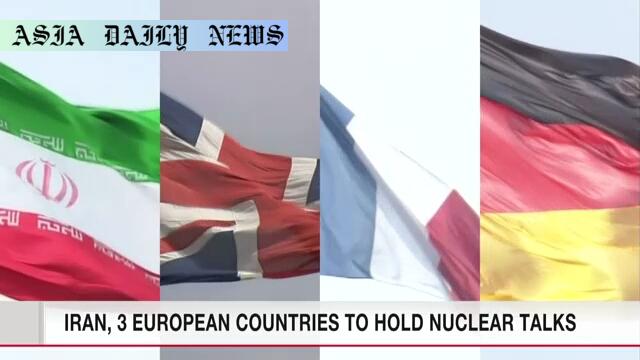Nuclear talks: Iran will hold negotiations with Britain, France, and Germany on its nuclear program in Istanbul this Friday.
- Iran is set to hold nuclear talks with Britain, France, and Germany.
- Talks aim to avoid UN sanctions but highlight resistant positions.
- Meetings will take place in Istanbul this Friday for negotiations.

Introduction: Critical Nuclear Discussions Resume
The tensions surrounding Iran’s nuclear program continue to dominate global diplomatic concerns, with Tehran set to engage in talks with Britain, France, and Germany this coming Friday in Istanbul. These discussions, reported by Iranian state television, mark a significant attempt to address the looming possibility of the ‘snapback’ mechanism, a provision under the 2015 nuclear deal that reimposes lifted UN sanctions. As these discussions approach, both hope and skepticism surround the likelihood of progress.
The Background of the 2015 Nuclear Deal
In 2015, a landmark agreement was reached between Iran and major world powers, commonly referred to as the Joint Comprehensive Plan of Action (JCPOA). This agreement imposed strict limitations on Iran’s nuclear activities in exchange for sanctions relief, with the aim of ensuring that Tehran’s nuclear program would remain peaceful. However, escalating tensions over compliance, especially following the withdrawal of the United States from the agreement in 2018, have jeopardized the deal’s longevity.
Current Context and Escalating Pressures
The latest developments come on the heels of a period of intensified strain. Last month, reports of an attack on nuclear facilities in Iran, attributed to Israel and the United States, exacerbated the already tense relations. In response to this, Iran has shown steadfast resistance, insisting that it will not make any new concessions regarding its nuclear agenda. At the same time, Britain, France, and Germany have moved to heighten diplomatic pressure, considering mechanisms that could reverse prior agreements on sanction relief.
Tehran’s Calculated Strategy
Iran’s decision to meet with European nations appears strategic. The move reflects a desire to prevent the reinstatement of UN sanctions, which could further cripple the country’s struggling economy. While these talks show a willingness to engage, Iranian officials remain adamant that their nuclear ambitions are aligned with peaceful purposes, defying attempts to extract significant policy shifts through international pressure.
Potential Outcomes and Broader Implications
The Istanbul talks may serve as a litmus test for the overall feasibility of reviving cooperative agreements under the JCPOA framework. A successful dialogue may pave the way for re-establishing trust and a potential reopening of wider negotiations, including those with the United States. However, continued hardline stances and external geopolitical dynamics, including U.S. and Israeli influences, pose considerable challenges.
Conclusion and The Global Perspective
As the world awaits the outcome of Friday’s meeting, the situation underscores the complexities of modern diplomacy. It highlights the fragile balance between national interests, global security concerns, and the urgency of fostering cooperation amidst rising tensions. Whether the talks in Istanbul will lead to tangible, lasting progress remains to be seen, but it provides an essential opportunity to address a significant geopolitical issue with potentially global ramifications.



Commentary
Broader Implications of Ongoing Negotiations
The resumption of nuclear talks between Iran and European powers comes at a decisive juncture. These discussions are not just about Tehran’s nuclear capabilities; they are emblematic of broader geopolitical challenges, including trust deficits, diverging interests, and the influence of third-party actors such as the United States and Israel. For observers following these developments closely, these talks symbolize an enduring opportunity for diplomacy amidst rising global tensions.
The Challenge of Building Consensus
The primary hurdle in reaching an agreement stems from the entrenched positions held by all parties. While European nations hope to push for compliance that facilitates peace and stability, Iran is wary of what it views as inequitable demands and interference. The historical grievances, compounded by unilateral U.S. withdrawal from the deal in 2018, make the pathway to meaningful resolution exceedingly complex. The success or failure of these meetings will likely shape not only Iran’s relations with the West but also establish a tone for how multilateral agreements are upheld during this era of uncertainty.
A Moment for Diplomatic Innovation
In light of the deadlock, there is a need for innovative and inclusive approaches to diplomacy. A one-size-fits-all approach will no longer suffice. Each actor in this negotiation must acknowledge the legitimate concerns of the other, while remaining committed to the overarching goal of regional stability and nuclear non-proliferation. Furthermore, these discussions highlight the importance of mitigating external provocations and ensuring that diplomatic efforts are granted the time and space they deserve.